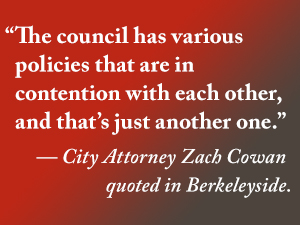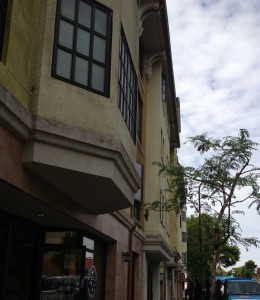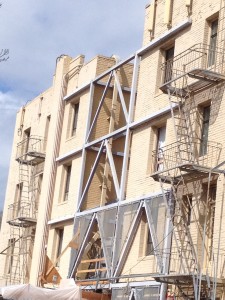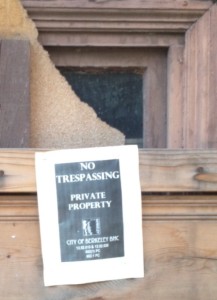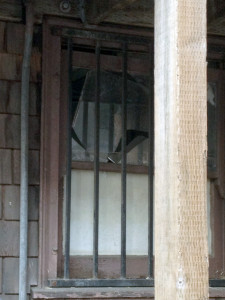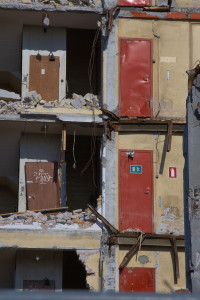Update: Seismic Safety – Mandatory Retrofits
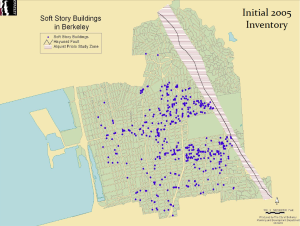 BTU is very focused on Seismic Safety this summer. San Francisco passed a mandatory retrofit law that allows landlords to pass the costs of seismic upgrades to their tenants; it has been reported that the average rent increase there will be $900 a year! We won’t let this happen in Berkeley! Please join BTU by coming to our August 14 Potluck to learn how you can help.
BTU is very focused on Seismic Safety this summer. San Francisco passed a mandatory retrofit law that allows landlords to pass the costs of seismic upgrades to their tenants; it has been reported that the average rent increase there will be $900 a year! We won’t let this happen in Berkeley! Please join BTU by coming to our August 14 Potluck to learn how you can help.
The really good news at the first public hearing on retrofits, held July 25, was that the city has hired one staff member to deal with “Soft-Story Phase 2” – the retrofit law. Berkeley has not really enforced the 2005 rules (“Soft Story Phase 1”) in part because there has been no dedicated staff in the Housing department for this work.
Berkeley landlords had a huge turnout July 25, with their comments ranging from helpful suggestions to difficult demands. Several landlords pointed out that the city permit process makes it more expensive to retrofit by making their construction timeline uncertain and requiring additional safety work be done at the time the retrofit permit is issued. Many also claimed they can’t afford a retrofit and can’t get a loan to do one. The city has discussed creating a low-interest loan fund for owners who really can’t afford to make their buildings safer, but several landlords said they want to see a zero-interest loan from the city.
Most tenants who spoke talked about how they want their building to be safe, but believe any substantial rent increase would be a hardship. Some said they were willing to pay a little more rent if they could afford it. Tenants also spoke about fear of temporary relocation, but Rent Board speaker Matthew Siegel said few retrofits are expected to require relocation. Landlords said the law (Relocation Ordinance), which requires that owners pay a “rent differential” and other expenses for tenants who must temporarily move out, is unfair.
Currently, 109 buildings on the original unsafe list are now retrofit, while 18 have not even done the engineering report required under the 2005 law. There has been no city tracking of compliance with the required posting of warning signs, but BTU joined the Third Annual Day of Seismic Action and found many buildings lacked signage. No fines have been issued.
The Rent Board speaker said that agency would consider allowing costs to be passed through to tenants, so we intend to gather tenants to speak at upcoming hearings at the Rent Board (possibly AUGUST 26), Disaster and Fire Safety Commission (AUGUST 7), and the Planning Commission (SEPTEMBER 4).
July 25 Hearing:
http://www.berkeleyside.com/2013/07/26/berkeley-renews-focus-on-retrofitting-soft-story-buildings/#disqus_thread
Draft Legislation:
http://www.ci.berkeley.ca.us/Planning_and_Development/Building_and_Safety/Soft_Story_Program.aspx
No Signs Posted at Many Unsafe Structures:
Seismic Day of Action 2013 Report
Related: Alameda renters got eviction notices from the new owners at Marina View Towers. Carmel Apartments will evict 84 families to perform seismic retrofits.
http://blog.sfgate.com/inalameda/2013/07/27/the-broad-brush-your-alameda-news-in-60-seconds-33/

